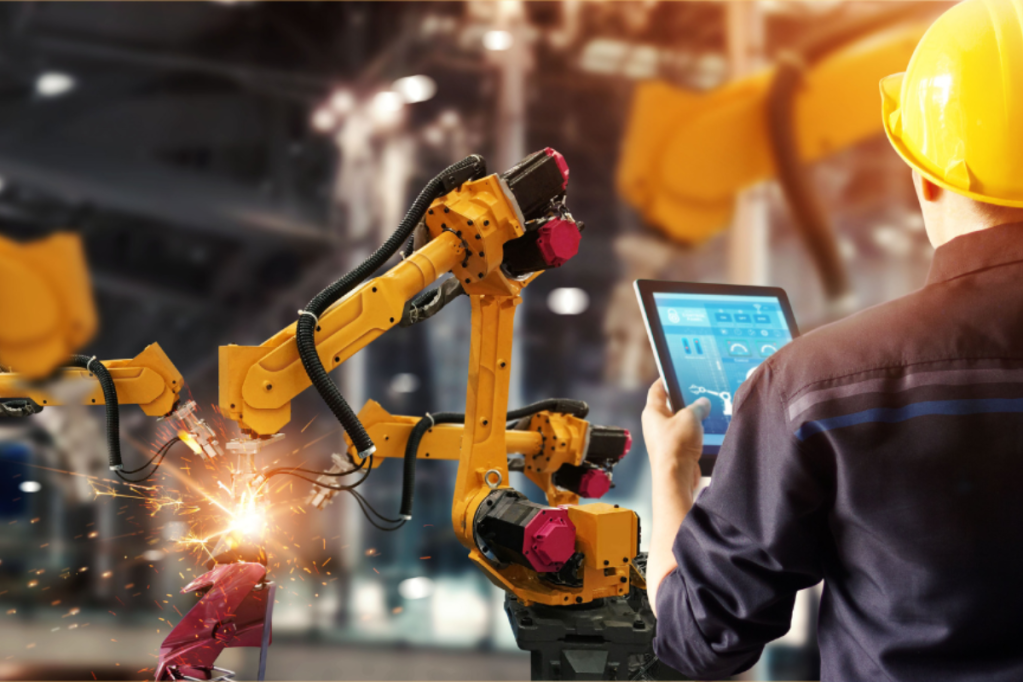
Industry 4.0 is introducing a revolutionary era of modern manufacturing, utilizing advanced connectivity, data analytics, automation, and cutting-edge manufacturing technologies to achieve unparalleled levels of efficiency, productivity, and sustainability. Intelligent “cyberphysical systems” lie at the heart of this revolution, redefining production by collecting and analyzing massive volumes of data from diverse sources.
Recognizing the immense potential, global manufacturers are rapidly embracing these technologies. A recent survey projects the global market valuation to soar to $210 billion by 2026, fueled by the imperative to elevate productivity, optimize supply chains, and champion sustainability.
The future of this industrial transformation hinges on collaboration and robust ecosystems, with a strategic emphasis on partnerships with software, hardware, and network solution providers. Software providers play a pivotal role in this landscape by empowering manufacturers to harness transformative technologies such as Internet of Things (IoT), Artificial Intelligence (AI), data science, and cloud computing.
Unlocking value through technology: transformative use cases
The digital transformation sweeping across the manufacturing industry is more than just an upgrade: it’s a fundamental shift for both organizational culture and operations. Manufacturers can unlock targeted solutions that deliver tangible, bottom-line improvements by strategically partnering with software, hardware, and network providers. Here’s how leading manufacturers are leveraging Industry 4.0 to drive sustainability, efficiency, and unprecedented visibility:
Collaborative design platforms: Imagine R&D teams, product designers, and key stakeholders seamlessly collaborating on a single, unified platform. Cutting-edge IT solutions are making this a reality. By providing instant access to design data and fostering real-time collaboration, these platforms fuel rapid prototyping, minimize costly design iterations, and dramatically accelerate time-to-market.
Predictive maintenance: By integrating IoT sensors with powerful data analytics, manufacturers are moving from reactive to proactive maintenance, reducing downtime by up to 50% and extending the lifespan of their valuable assets by 40%. This not only optimizes equipment utilization but also unlocks significant cost savings and enhances operational efficiency.
Supply chain optimisation: In today’s complex global landscape, supply chain visibility is paramount. Advanced analytical platforms provide a comprehensive view of your entire supply chain, enabling optimized logistics, precisely balanced supply and demand, and improved order fulfillment. This translates to reduced inventory costs, faster delivery times, and the agility to respond effectively to market fluctuations.
Agile manufacturing: Staying ahead of the curve requires a deep understanding of customer needs. Advanced analytics and AI empower manufacturers to gather real-time customer insights and analyze feedback with unprecedented speed. This allows R&D teams and product designers to develop products that precisely align with market demands, driving customer satisfaction and loyalty and fostering a culture of continuous innovation.
Quality control and defect detection: By deploying IoT sensors and AI across production lines, manufacturers are identifying anomalies and quality issues in real-time. This proactive approach not only minimizes waste and rework but also ensures that every product meets the highest standards of excellence, enhancing customer satisfaction and protecting your brand reputation.
Circular economy practices: This technology-driven transformation is a powerful enabler of circular economies. Through data analytics and IoT networks, manufacturers can minimize waste and maximize material reuse. Operational data-powered analytics and AI further contribute by facilitating the design of sustainable products from the very beginning, minimizing environmental impact, and optimizing resource efficiency throughout the entire production lifecycle.
Carbon footprint monitoring and optimisation: Reducing your environmental footprint is no longer just good practice; it’s a business imperative. By leveraging IoT, AI, and big data analytics, manufacturers can monitor energy consumption and emissions in real-time. This granular level of insight allows for the identification of inefficiencies, optimization of processes, and implementation of energy-saving measures, contributing to a greener future.
Connecting the dots from traditional to digital manufacturing
Embracing a technology-driven transformation requires careful navigation of key challenges, demanding strategic planning and robust solutions. For instance, as manufacturers increasingly rely on cloud-based technologies and interconnected systems, the risk of cyberattacks escalates. Protecting sensitive data becomes paramount, demanding robust cybersecurity measures to prevent breaches that could disrupt operations, damage reputations, and lead to significant financial losses. On the other hand, data silos hinder collaboration and agility. Manufacturers must strategize to avoid data silos, enable seamless data sharing between departments, and foster a culture of innovation.
Beyond technology adoption, new technologies require new skills. Investing in comprehensive training programs is essential to equip the workforce with the expertise needed to operate, maintain, and maximize the value of these advanced systems. Unexpected downtime cripples production and erodes profitability.
Proactive maintenance strategies are crucial to minimize disruptions caused by equipment failures, human error, or unforeseen events, ensuring continuous operations and optimal efficiency. The proliferation of IoT devices in the connected factory demands a robust and reliable network infrastructure. Seamless connectivity and high bandwidth are essential to support real-time data flow and ensure optimal performance of these interconnected systems.
Addressing these challenges requires a collaborative approach. By partnering with experienced technology providers, manufacturers gain access to the expertise and solutions needed to navigate the complexities of digital transformation and unlock the full potential of Industry 4.0.
Red Hat offers, in collaboration with its partners, a comprehensive suite of solutions, from edge computing and smart manufacturing to automation and integrated plant management, empowering manufacturers to embrace the future with confidence.
The technology-driven path to sustainable manufacturing
Embracing digital transformation is no longer a choice for manufacturers but a necessity. By harnessing the power of digital technologies, manufacturers can unlock unprecedented levels of efficiency, agility, and sustainability. This journey requires not only the right technologies but also a trusted partner to guide the way.
Red Hat’s cutting-edge open source solutions empower manufacturers to navigate the challenges of digital transformation and build a future-proof foundation for success. Dive into our upcoming articles here to uncover how Red Hat empowers businesses to innovate, excel, and achieve sustained success in the digital age.
To learn more about our offerings, reach out to us today.









